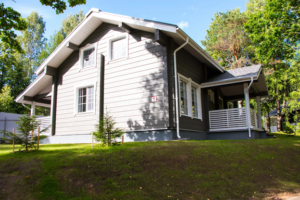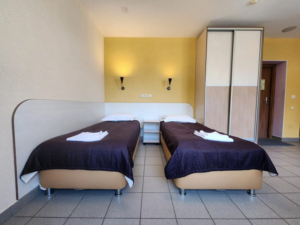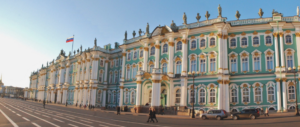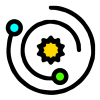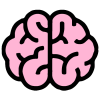In summer 2025, Euler Foundation is once again holding an educational camp “Formula of Unity”. School students of 14–20 y. o. from all over the world are invited to participate!
You can check out the history of these camps here. In a world where separation and alienation between people are mostly growing, we want to teach the next generations how to truly understand each other, cooperate, create together and find the common while acknowledging our differences.
Currently, the expected list of participants includes students from Azerbaijan, Bulgaria, Cameroon, Ecuador, Russia and Turkey.
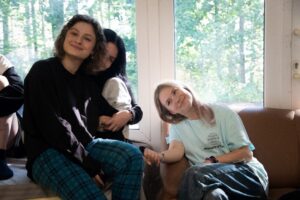
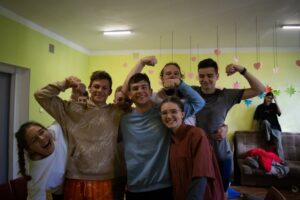
General information about the camp
Structure of the day in the camp
A typical day in our camp consists of two parts equal in duration and importance: an educational and a creative one.
Educational part
(Each participant chooses one preferred subject for all days of the camp.)
Creative part
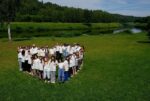
During the creative part of the day participants divide into mixed-age groups and set up events that fill the evening. Students can expect to take part in many activities, some of which have become a tradition in Formula of Unity. For instance:
- Discussions
- Intellectual games
- Roleplay and business games
- Sport events
- Various masterclasses, including language classes held by students who are native speakers of other languages
- Quests
- ‘Candles’ (these’re evening talks in each group, where we discuss a certain topic and unite)
- Trainings and team building
- etc.
Participants will try themselves as event organizers (take part in the ‘deed council’) and step into the role of daily leaders (‘duty commanders’). We will have the chance to create something new and exciting, learn how to plan and manage time in a way that is both meaningful and beneficial. We will work on expressing opinions, defending our viewpoints, and engaging in public speaking. As well significantly improve the informal communication skills in English.
The group activities will be supervised by counselors – educators who will help the participants adapt to the camp environment and facilitate their creative initiatives.
All the teaching, group activities and daily communication will be in English!
You can read more about our approach here.
Cost of participation in the camp
Registration for the camp
Registration takes place in your Personal Account:
Contact information
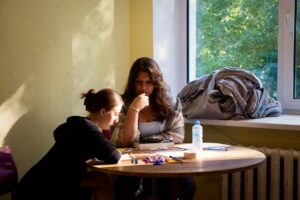
Русский язык (подготовка к ЕГЭ), 10 — 11 классы
Данный курс создан для подготовки старшеклассников к сдаче ЕГЭ по русскому языку и подойдёт ученикам как десятого, так и одиннадцатого классов. На занятиях мы обсудим критерии оценки экзамена, основные разделы, включённые в него, а также систематизируем и углубим знания предмета. Этот курс ориентирован на практику: мы будем решать много заданий, писать сочинения, но, разумеется, на базе подготовленного теоретического материала.
Преподаватель: Ульяна Павлова, стаж подготовки школьников к ЕГЭ и ОГЭ по русскому — 5 лет. Средний балл учеников — 80 и выше.
Information about this subject will be announced soon.

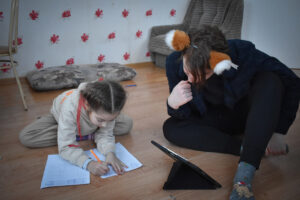
Programming in Python, 16 — 20 y.o.
Everything you see on the Internet, from simple text files and pictures of cats to games and sites like YouTube, hides thousands, if not tens of thousands of lines of code written by smart people.
If you have ever wanted to understand how people came up with this, or you want to learn how to control your computer, or you are just curious about what programmers do while sitting at a computer all day, then I invite you to my profile!
In 12 school days, you will not learn all of Python, but you will get a good basic level so that you can continue to study it on your own. And to be more precise, we will go through the following topics at a leisurely pace:
- Variables and their types
- Arithmetic in Python
- How to work with strings
- What is massive in arrays
- What does branching mean
- What is recursion and what does recursion have to do with it
- And everything else you ask about
Attention! You need to bring a laptop with you, preferably with the Windows 10 or Windows 11 operating system, or at least with MacOS, not necessarily a very powerful one.
Teacher: Boris Kharitonov, a student at the National Research University Higher School of Economics, Faculty of Computer Science. I have been programming for my own pleasure for over 5 years and touched almost every sphere of IT.
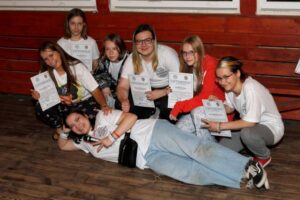
Psychology
The human brain is very complex, and we still don’t know a lot about it. During the classes we will cover the main topics that will help us understand it better:
You will learn about different psychological approaches, how phycology has developed in different countries. We’ll analyse the way the human psyche works from the medical point of view too. I think the neuroscience section is one of the most interesting ones. Learning about clinical psychology and psychiatry, we will study the mechanisms of formation of pathologies, various neurological diseases, and try to diagnose patients. Some of the psychological techniques that we will study can help us better understand not only others, but also ourselves.
I will be very glad to see you there!
Teacher: Andrade Samarina Karolina, Bachelor, Institute of Special Education and Rehabilitation of the Herzen State Pedagogical University.
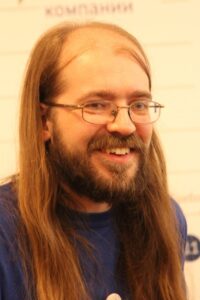
Biology
Are you driven to understand how scientists think and make groundbreaking discoveries? Welcome to our biology classes!
Engage in thought-provoking discussions with like-minded peers and tackle Olympiad-style problems that challenge your creativity. Rooted in real biological cases, these exercises develop scientific thinking and problem-solving skills. You’ll also gain insights into design of experiments through analyzing scientific papers. Some of the questions we’ll explore remain unanswered — could you be the one to crack them?
To keep things dynamic, we’ll solve science fiction problems, such as developing the anatomy of dragons or physiological basics of telepathy. Additionally, we’ll carry out experimental studies of our bodies and consciousness to deepen your hands-on understanding of biology. All these will be done with scientific accuracy, though.
Teacher: Stas Falkovich. I have master degree in biophysics and PhD in computer simulations of molecules, and I’m into science since childhood. Now I am a teacher in maths, sciences and arts, I lead philosophical camps, dance tango, go hiking and learn to make amateur translations of poetry. Welcome to the intellectual journey!

Space physics
Have you ever asked yourself:
- What is cosmic radiation?
- What was the history of the discovery of this physical phenomenon?
- What is its essence, and how does it differ from the radioactivity usual for terrestrial conditions?
- Why study this phenomenon at all?
- What are the sources of cosmic radiation, and what is the physics of the processes that lead to the appearance of cosmic radiation?
- What does space dosimetry deal with, what are the main concepts and definitions it operates with?
- How does cosmic radiation affect biological structures?
- How does it affect the materials of spacecraft elements and the electronic equipment installed on board?
- What methods are used to register cosmic radiation during space flights?
- What space experiments devoted to this topic have been conducted to date?
- What are the prospects for further research?
You will learn about all this and much more that awaits us during interplanetary flights to the Moon and Mars, about how near-Earth space is arranged, about how the heliosphere is arranged and what secrets it still hides from the inquisitive gaze of Humanity, on the «space physics» profile.
Teacher: Andrey Lishnevskii, Ph.D., a specialist in radiation safety in manned space missions, a nuclear physicist by education, a graduate of the Physics Department of Lomonosov Moscow State University. Participant of the first children’s radio message to extraterrestrial intelligence (https://en.wikipedia.org/wiki/Teen_Age_Message). Took part in the selection for the Roscosmos cosmonaut corps in 2017.
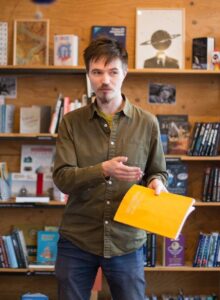
Leadership
On the Sociotechnician profile we will try to understand what society is and how an ordinary person can influence it.
The big world around us is full with challenges. Most certainly there are issues that disturb you personally but you feel like there is nothing you can do about that. Many people think that all that remains for us is to accept it and leave it alone. But there are those who decide to change the world around them. It can be a small “world”: a group of friends, a circle of like-minded people. Or there can be communities and even entire movements to implement widescale changes.
That is the core of sociotechnics: by uniting, people can change the environment around them. Special technologies have been developed for this — social technologies. They provide answers to the questions:
- How to gather like-minded people?
- How to resolve conflicts?
- Why do some ideas spread everywhere, while others disappear?
- How to create new ways of living?
- How to take into account global civilization trends in our everyday life?
- How to raise resources for a non-profit project?
…And much more. During the camp, we will get acquainted with these tools and understand how to apply them to real life situations.
But you won’t be able to rebuild the environment if you don’t learn to change yourself! Therefore, a significant part of the course will be dedicated to learning tools for self-development, self-determination, and self-management.
Of course there will be a lot of discussions. We will discuss what is happening in the world, consider existing trends and social problems. When we start talking about the transformation of social reality, different people will have different positions on what this “change for the better” means. So we shall also discuss our ideas for better society and what the very concept of “better” means.
Teacher: Alexey Doilnitsyn (Io). Philosopher and practitioner in developing educational communities.

 Check-in
Check-in
 Check-out
Check-out
 Location
Location
 Details
Details

 Before February 14
Before February 14
 From February 15
From February 15
 Discounts for groups are possible
Discounts for groups are possible 
 Email
Email
 Telephone
Telephone
 Telegram
Telegram
 Whatsapp
Whatsapp






